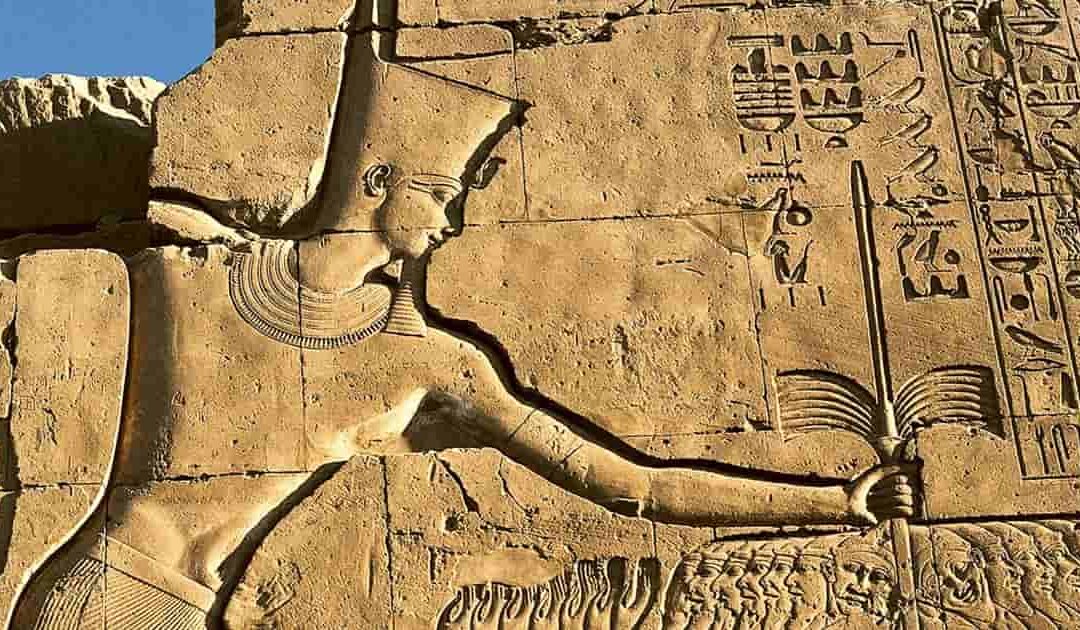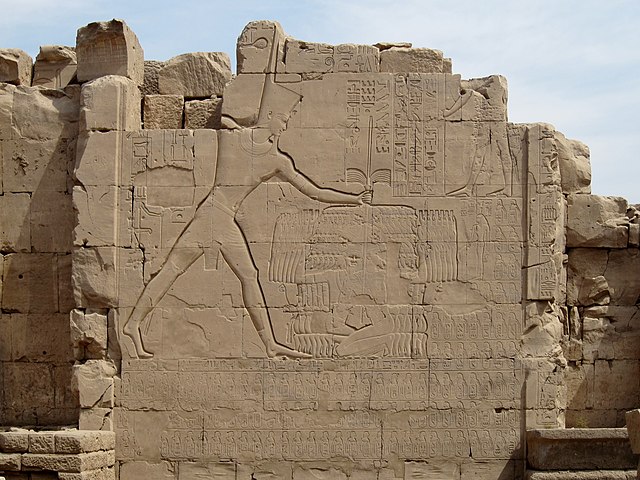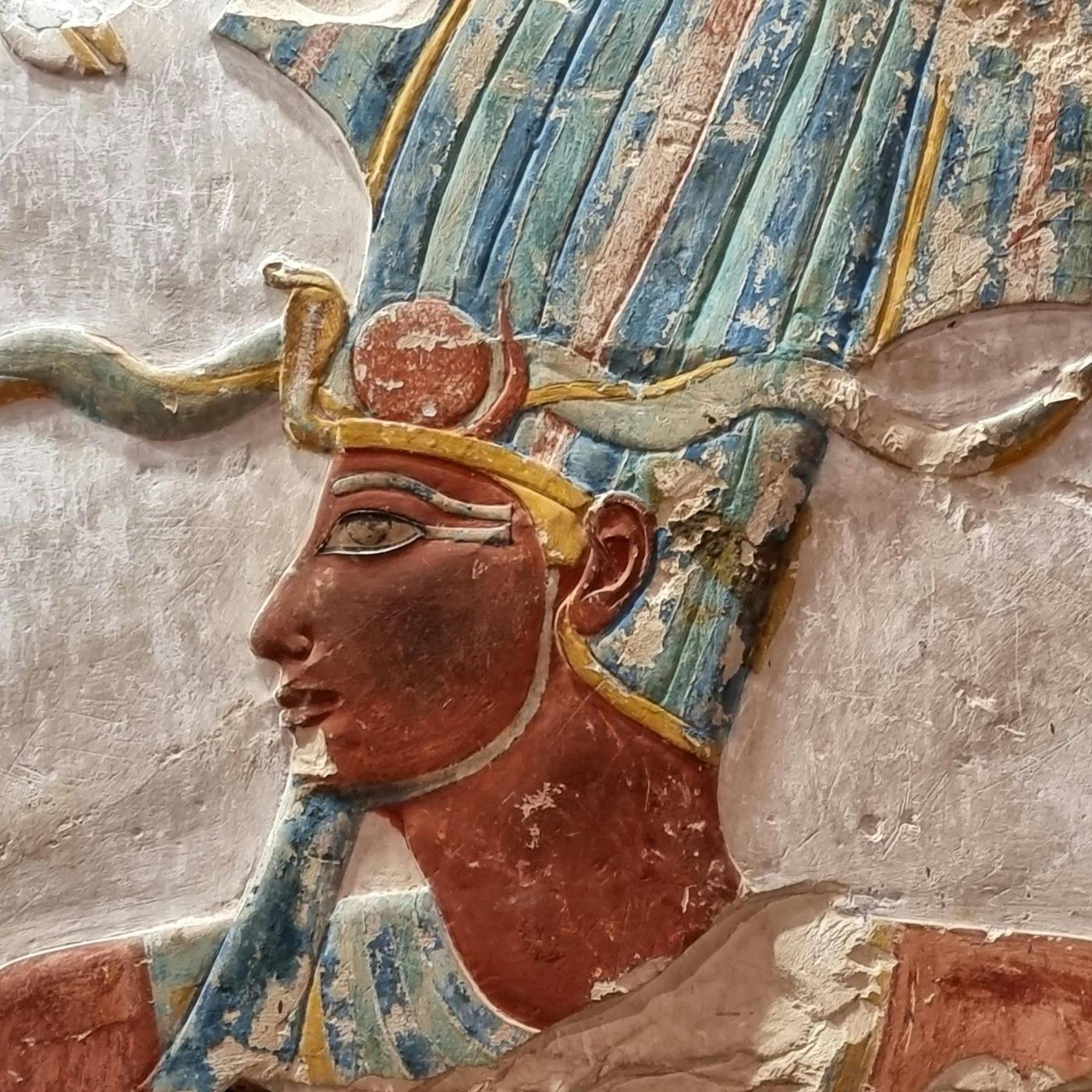Introduction to Thutmose III’s Legacy
Known as the “Napoleon of Ancient Egypt,” Thutmose III (1479–1425 BCE) is celebrated as one of Egypt’s greatest warrior pharaohs. His leadership brought the New Kingdom to its zenith, expanding Egypt’s territories to unprecedented extents. Under his rule, Egypt’s military and cultural influence spread far beyond its borders, marking an era of profound prosperity and power. This legacy, immortalized in stunning reliefs depicting Thutmose III’s powerful stance, captures the essence of a ruler whose reign was defined by both strength and strategic brilliance.

Ascending to Power: Co-Regency with Hatshepsut
Thutmose III initially served as co-regent with his stepmother, Hatshepsut, who ruled as pharaoh during his early years. Following her death, he assumed full control, embarking on a period of military and cultural achievements. Hatshepsut’s reign had set the stage with extensive trade and temple building, and Thutmose continued her legacy, transforming Egypt into a military powerhouse.
Military Campaigns: Expanding Egypt’s Empire
A true warrior-pharaoh, Thutmose III led 17 documented military campaigns, extending Egypt’s control from the Mediterranean coast to the Euphrates. His most notable military accomplishment was the Battle of Megiddo, where he displayed unparalleled tactical expertise. This victory in the Levant not only secured essential trade routes but also established Egypt’s dominance over numerous city-states. Through his decisive leadership, Thutmose III expanded Egypt’s empire, creating a network of vassal territories that served as a buffer against external threats.
The Battle of Megiddo: A Turning Point
The Battle of Megiddo stands out as a pivotal moment in Thutmose’s military career. It was here that he orchestrated a surprise attack that caught his enemies off guard. This victory cemented Egypt’s military reputation and solidified its control over important trade routes. Thutmose’s triumph at Megiddo also underscored his strategic brilliance, as he leveraged the terrain and timing to achieve a decisive victory that would be remembered throughout Egyptian history.

Architectural Contributions: The Festival Hall at Karnak
In addition to his military exploits, Thutmose III was an active patron of Egyptian architecture. His expansions at the Karnak Temple Complex include the Festival Hall, a grand structure adorned with reliefs celebrating his triumphs and conquests. These inscriptions and carvings not only commemorate his victories but also emphasize his role as a divine ruler. By reinforcing his power through monumental architecture, Thutmose III ensured his legacy would endure within Egypt’s sacred spaces.

A Golden Age of Prosperity
Thutmose III’s reign also ushered in a period of economic prosperity and cultural exchange. The resources gained from his military campaigns enriched Egypt’s treasury, enabling further temple constructions, artworks, and cultural advancements. Trade flourished under his rule, bringing goods and ideas from distant regions into Egypt. This influx of wealth and knowledge helped solidify Egypt’s status as a center of civilization.
The Legacy of Thutmose III
Thutmose III’s achievements went beyond military conquests; he shaped Egypt’s future through strategic leadership, architectural innovation, and cultural development. His victories not only fortified Egypt’s borders but also left an enduring mark on its heritage. Today, he remains one of the most celebrated figures in the Egyptian pantheon, symbolizing an era of might, cultural richness, and monumental achievements.

Conclusion
Thutmose III stands as a testament to Egypt’s golden age, embodying the ideals of strength, wisdom, and leadership. His rule set the stage for an empire that would influence the ancient world for centuries to come, ensuring his place among Egypt’s most honored pharaohs. Through military triumphs, architectural grandeur, and a lasting cultural legacy, Thutmose III’s influence continues to inspire admiration and respect across generations.

